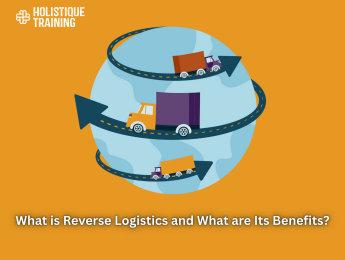- Table of Contents
- 1. Introduction
- 2. The Evolution of the MBA
- Tuition cost breakdown
- Expected salary uplift
- Pay-back period
- Scholarships and employer-sponsorship
- 4. The Non-Financial ROI: Skills, Network, and Career Mobility
- Transferable Skills
- Alumni Networks & Brand Prestige
- Global Exposure & Career Mobility
- 5. The Pros of Doing an MBA
- 1. Career Advancement and Promotions
- 2. High Earning Potential
- 3. Networking and Mentorship Opportunities
- 4. Entrepreneurial Toolkit
- 5. Access to Global Markets and Mobility
- 6. Personal Growth and Confidence
- 6. The Cons and Criticisms
- High Tuition and Student Debt
- Uncertain ROI in Saturated Job Markets
- Over-emphasis on Theory vs. Practical Experience
- Some Industries Value Skills/Certifications More Than Degrees
- “MBA Inflation” — Degree Prestige Dilution
- Opportunity Cost of 1–2 Years Out of the Workforce
- Counterpoints
- 7. Alternatives to an MBA
- Professional Certifications
- Specialised Master’s Programmes
- Micro-credentials & Online Learning
- Entrepreneurial or On-the-Job Learning Paths
- 8. Industry-Specific Value: When an MBA Matters Most
- High ROI industries
- Moderate ROI industries
- Low ROI industries
- 9. How to Evaluate if an MBA Is Right for You
- Personal & Professional Goals Checklist
- Key questions
- Timing: early career vs mid-career
- Return on time, money and energy
- Online and Executive Programmes Offer Flexibility
- 10. Conclusion
1. Introduction
The value of an MBA has long been a staple of career conversations: for decades, the Master of Business Administration was seen as the golden ticket to senior roles, higher pay and global mobility. Yet as we move into 2025 and beyond, the question “Is an MBA worth it?” is no longer as straightforward. The business education landscape has evolved: not only have the costs of full-time programmes increased significantly, but alternative credentials such as online MBAs, micro-credentials and professional certifications have emerged, providing new pathways into leadership, analytics, entrepreneurship and more.
In this context the return on investment (ROI) of an MBA is under fresh scrutiny. Prospective students are weighing not just the immediate salary uplift but also time out of the workforce, opportunity cost, networking value, and long-term career mobility. Meanwhile, business schools are adapting: integrating technology, global modules, sustainability, and hybrid delivery models.
Therefore, this article examines the question of whether an MBA is still worth it - from financial return to non-monetary benefits, from pros and cons to alternatives - and asserts the following thesis: the answer depends on your career goals, industry, financial situation and long-term ROI horizon. In other words, an MBA can be extremely valuable - but it is not universally so and its value must be assessed in relation to your specific context.
2. The Evolution of the MBA
The Master of Business Administration has its roots in the early 20th century. The first MBA programme in the United States was offered by Harvard Business School in 1908, underlining the idea that business leadership could be trained as a profession. Through the mid-20th century and especially from the 1980s into the 2000s, the traditional two-year full-time MBA enjoyed a “golden age”. Business schools proliferated globally, corporations actively recruited MBAs, alumni networks strengthened and the degree became synonymous with ambition and upward mobility.
In recent years, however, the MBA model has transformed. Technological integration (such as digital analytics, AI, fintech), sustainability and ESG (environmental, social & governance) themes, entrepreneurship modules and global exposure (study trips, multi-campus cohorts) have become mainstream. Also, delivery modes have diversified: beyond the classic full-time programme, hybrid, part-time, online, accelerated (12- or 15-month) and executive MBAs (for mid-career professionals) are now widely available.
This shift affects costs, duration, career outcomes and flexibility. Traditional two-year residential MBAs often require temporary withdrawal from the workforce, full tuition and relocation; whereas modern formats may allow continued employment, lower fees and quicker return to work. Below is a comparison of typical programme types:
Format | Duration | Full-time out of work? | Typical cost* | Flexibility |
Full-time (classic, 2-yr) | 24 months | Yes | High (tuition + living) | Low — intensive |
Accelerated/short-format | 12-15 months | Yes | Moderate | Moderate |
Part-time / Executive | 18-24 months+ | Often no (work while) | Variable | Higher — designed for working |
Online / Hybrid | 12-24 months | No (remote) | Lower | High — maximum flexibility |
*Typical cost estimates vary widely by geography, school ranking and format.
In sum, the MBA is no longer a one-size-fits-all proposition; potential students must consider what format best aligns with their career timing, goals, budget and lifestyle.
3. The Financial ROI of an MBA
When evaluating whether an MBA is worth it, the financial dimension is often at the forefront: how much will it cost, how much will you earn afterward, and how long until you recoup your investment?
Tuition cost breakdown
Top global MBA programmes can cost tuition of US $70,000 or more per year (or its equivalent). When you add living expenses, relocation, opportunity cost (lost salary during study) and debt interest, the total investment can easily exceed US $200,000 for a two-year full-time programme in the US. By contrast, regional programmes or accelerated formats may cost markedly less. Furthermore, hidden costs such as lost raises while studying, travel for global modules, and living in expensive cities should be factored in.
Expected salary uplift
Regarding salary uplift, one study found that across 77 US MBA programmes, the average annual ROI was 12.7 %, yielding an extra US $662,290 over ten years. Another survey by the Graduate Management Admission Council (GMAC) reported that business-school graduates reported recouping one-third of the investment within the first year and achieving full pay-back within four years. Geographically, alumni in the US tend to earn higher post-MBA salaries than many other regions; however cost of living and currency fluctuations must be considered for regions like Europe and Asia.
Pay-back period
A typical pay-back period (time to recover investment) might be three to six years for many top-tier programmes, depending on pre-MBA salary, post-MBA salary increase and the size of the initial investment.
Below is a simplified table comparing cost and ROI for illustrative top MBA programmes:
School | Approx. total cost* | Avg. alumni salary ~3 yrs after | Approx. ROI indicator |
Harvard Business School (USA) | ≈ US$250,000 | ≈ US$240,000+ | High – long pay-back |
INSEAD (France/Singapore) | ≈ US$100,000-US$140,000 | ≈ US$210,000 | Very high (short format) |
London Business School (UK) | ≈ US$150,000 | ≈ US$215,000 | Strong |
Regional MBA (non-top tier) | US$50,000-US$80,000 | US$100,000-US$130,000 | Moderate |
*Costs include tuition + living + lost salary; estimates vary widely.
For example, a “value for money” list by the Financial Times found that certain programmes achieved salary increases of 150 % or more from pre-MBA pay and average alumni salaries of US$180,000+ while keeping costs lower.
Scholarships and employer-sponsorship
Many prospective students mitigate cost via scholarships, fellowships, employer sponsorship or partnership programmes. Some companies sponsor top talent to do an MBA in return for a commitment to stay for a number of years. These arrangements can significantly shorten the pay-back period and enhance net ROI.
In summary, the financial ROI of an MBA can be very strong — especially when pre-MBA salary is already high, the programme is of high standing, and the post-MBA outcome aligns with high-pay industries. But the key caveat remains: cost is steep, and the uplift is not guaranteed.
4. The Non-Financial ROI: Skills, Network, and Career Mobility
While financial return is key, many of the most meaningful returns from an MBA lie in the non-financial realm. These include skills, network and career mobility – each of which should be considered under sub-headings.
Transferable Skills
An MBA programme often emphasises leadership, strategic thinking, negotiation, analytics and data-driven decision making. Graduates report being better equipped to understand organisational dynamics, global markets and cross-functional business models. The GMAC 2025 survey found that ROI (in terms of career outcomes) is now prioritised by candidates over rankings.
Alumni Networks & Brand Prestige
One of the oft-cited benefits is the access to a global alumni network and the brand prestige of top business schools. These networks open doors to career opportunities, mentor relationships and industry contacts that may otherwise take years to establish. The brand of a well-known school can also serve as a signal to employers of quality, ambition and capability.
Global Exposure & Career Mobility
Many MBA programmes provide internships, global study trips, exchange modules and exposure to multinational cohorts. This enhances global mindset, cultural agility and the ability to switch industries or geographies. For example, engineers may pivot to consulting, healthcare professionals to finance, or domestic managers to international roles. Alumni report that the MBA experience helped them make such transitions more smoothly.
In one survey , business school graduates emphasised that “skills + network + mobility” formed the real value of their MBA, ahead of pure salary uplift.
In sum, the non-financial ROI is substantial and long-lasting: even if salary doesn’t immediately sky-rocket, the expanded skill-set, enhanced confidence, global network and career flexibility often pay dividends over a lifetime.
5. The Pros of Doing an MBA
Here are the key advantages of undertaking an MBA, each with brief real-world flavour:
1. Career Advancement and Promotions
An MBA often accelerates progression into management, senior leadership or strategic roles. Many business schools report high placement rates and recruiters favour MBA graduates for leadership tracks. For example, a former engineer who completed the MBA at INSEAD went into global management consulting in a London-based firm, elevating from five-years’ experience to strategy consultant in one move.
2. High Earning Potential
As the financial ROI section noted, many MBA graduates see significant salary uplift. Graduates from top programmes often earn six-figure salaries, sometimes immediately post-MBA, especially when entering consulting, finance or tech leadership.
3. Networking and Mentorship Opportunities
Studying alongside ambitious peers from across industries and geographies, and gaining access to alumni networks, events and mentorship, is a key benefit. Many alumni attribute career breakthroughs to relationships formed during the MBA — for example, a cohort peer becoming a co-founder in a startup, or an alumni mentor introducing a senior role.
4. Entrepreneurial Toolkit
For those seeking to start their own venture, an MBA provides frameworks (business plan development, fundraising, market strategy), exposure to investors, incubation support and often a cohort of co-founders/founders. A tech founder who took an MBA after 3 years in a startup reported that the degree helped him pivot into a scalable business model, build a management team and secure Seed-A funding.
5. Access to Global Markets and Mobility
An MBA often provides international exposure, recruitment by global firms and placement in diverse geographies. For example, one healthcare manager from Germany joined a Singapore-based operations role after her MBA, leveraging the school’s global network.
6. Personal Growth and Confidence
Beyond the career axis, many MBA students report personal transformation: improved confidence, better communication, strategic mindset, and a broader worldview. They say the challenge of the programme, interacting with diverse peers, and handling leadership assignments helped them become more effective and empowered managers.
In short, an MBA offers a compelling combination of career launch-pad, salary potential, network access, entrepreneurial grounding and personal growth. For many, it remains one of the most transformative postgraduate investments one can make.
6. The Cons and Criticisms
Despite the many benefits, an MBA is not without downsides. Here are key criticisms — along with brief counterpoints where relevant.
High Tuition and Student Debt
Cost remains the biggest hurdle. As noted, the investment often runs into the six-figures. For many students this means debt, burden of repayment and significant risk. Not all graduates’ salaries increase enough to offset this quickly, particularly if they enter lower-paying sectors or if the economy dips.
Uncertain ROI in Saturated Job Markets
In certain regions and industries, the MBA may no longer deliver the “premium” it once did. For example, if too many people hold MBAs, the distinction may blur and salaries may stagnate. Some employers may regard the MBA as table stakes rather than a differentiator.
Over-emphasis on Theory vs. Practical Experience
Critics argue that many MBA programmes are heavy on case studies and theory, but light on hands-on experience or real-world integration. For roles that require immediate technical or operational expertise, alternative credentials or on-the-job training may yield faster results.
Some Industries Value Skills/Certifications More Than Degrees
In tech, design, data analytics, creative industries and entrepreneurship, employers may prioritise demonstrable skills, portfolios or experience over formal degrees. In these sectors, a specialised certification or micro-credential might be more relevant and cost ‐ effective than an MBA.
“MBA Inflation” — Degree Prestige Dilution
With more business schools offering MBAs, and more graduates entering the job market, the prestige associated with the degree may be diluted. The signalling effect is weaker in some markets, especially for mid-tier programmes or those without strong brand recognition.
Opportunity Cost of 1–2 Years Out of the Workforce
Full-time MBA students often leave their jobs for one or two years. During this time they forego salary, benefits, promotions and experience. For mid-career professionals especially, the lost opportunity cost must be weighed carefully.
Counterpoints
- Many programmes now mitigate opportunity cost by offering part-time, hybrid or deferred-work formats.
- Some schools provide robust career support and real-world projects, narrowing the gap between theory and practice.
- In the right industry (consulting, finance) and with strong outcomes, the cost and risk may still be justified.
In conclusion, the MBA is not a guarantee of success — the value depends heavily on the programme’s brand, your industry/role, your pre-MBA situation and your ability to leverage the network and outcomes. Conducting rigorous due diligence is essential before committing.
7. Alternatives to an MBA
Given the cost, time and risk of an MBA, many professionals are now exploring alternatives. Below are some of the most viable options.
Professional Certifications
Popular credentials such as the Project Management Professional (PMP®), Chartered Financial Analyst (CFA), Chartered Institute of Management Accountants (CIMA), Certified Public Accountant (CPA) or certifications from major tech firms (Google, Meta) provide targeted, industry-recognised credentials. For professionals in project management, finance, accounting or digital roles, these can deliver faster ROI at much lower cost.
Specialised Master’s Programmes
For those wishing to deepen expertise rather than broad management training, programmes such as MSc in Management, MSc in Finance, MSc in Data Analytics or MSc in Supply Chain may be more relevant. They tend to be shorter (12–18 months), less costly and offer refined specialism.
Micro-credentials & Online Learning
Platforms such as Coursera, edX, LinkedIn Learning and business-school online modules increasingly offer “stackable” credentials, certificates, nano-degrees and short programmes. These cater to working professionals seeking to upskill without taking a career break.
Entrepreneurial or On-the-Job Learning Paths
For many aspiring entrepreneurs or professionals already gaining work experience, starting a venture, performing cross-functional projects or moving laterally inside the company may deliver practical stretch faster than a formal degree.
Here is a comparison table of MBA vs alternatives:
Path | Typical duration | Approx. cost | Flexibility | Recognition/brand |
Full-MBA | 12-24 months | High (US$50k-US$250k+) | Low–Medium | Very high (top schools) |
Professional certification | 3-12 months | Low–Medium | High | High within specific field |
Specialised Master’s | 12-18 months | Medium | Medium | Medium–High |
Micro-credentials/Online | Weeks-months | Low | Very high | Emerging |
On-the-job/Entrepreneurial | Variable | Variable | Very high | Dependent on outcomes |
In summary, if your goal is very specific (e.g., data analytics, supply chain) or you cannot afford the time/money for an MBA, an alternative path may deliver better value. But the trade-off is often in brand prestige, broad management training and the global network that a full MBA confers.
8. Industry-Specific Value: When an MBA Matters Most
The value of an MBA also depends significantly on the industry or role you target. Here are three broad categories of industry ROI.
High ROI industries
In fields such as management consulting, investment banking, corporate strategy (especially in large multinational firms), and entrepreneurship (with strong growth potential), MBAs often yield the highest return. The structured career paths, high salaries and premium placed on leadership credentials make the degree particularly valuable. For example, many leading consulting firms recruit MBA graduates from top schools as future partners.
Moderate ROI industries
Industries like healthcare management, non-governmental organisations (NGOs), supply chain/logistics, marketing and operations may still benefit from an MBA — but the salary premium may be lower compared with top-tier finance/consulting roles. The return may come more from mobility and strategic roles than raw salary uplift.
Low ROI industries
In fields such as creative industries (art, media, design), journalism, early-stage tech startups (where skills and innovation may matter more than credentials), the MBA may deliver less value. In startup environments, practical experience, product sense and network may outrank formal degrees.
Furthermore, the rise of specialised MBAs (for example, Healthcare MBA, Sustainability MBA, Tech MBA) reflects how programmes are tailoring to industry-specific needs. These programmes may offer good value for professionals already in those sectors or seeking to pivot—but the general MBA effect may differ.
Hence, before committing to an MBA, it is wise to research your target industry: how much do employers in that field value the MBAs (and from which schools), what is the salary uplift typical for that field, and what alternative credentials or experience might substitute.
9. How to Evaluate if an MBA Is Right for You
Deciding whether to pursue an MBA is a major life and career commitment. Here is a checklist and framework to evaluate your fit.
Personal & Professional Goals Checklist
- Do you want to change industry or role (e.g., from engineering to consulting), or accelerate within your current trajectory?
- Is your ambition aligned with leadership, global mobility, strategy or entrepreneurship rather than a purely technical role?
- Are you ready to invest time (1–2 years possibly out of work), money and energy into the programme?
- Do you have (or will you build) the network and career support to leverage the MBA experience?
Key questions
- “Am I doing the MBA to open new doors, or just because it seems prestigious?”
- “Will the brand of school matter in my industry/region?”
- “What is my pre-MBA salary? What post-MBA role am I realistically aiming for?”
- “How long will it take to recover my investment, and what happens if the economic or job market changes?”
- “Could I achieve similar results by part-time or online, or via a specialised master’s or certification?”
Timing: early career vs mid-career
If you are early in your career (2–5 years experience), a full-time MBA may provide a powerful jump-start and industry switch. If you are mid-career (10+ years), an Executive MBA or part-time format may be more appropriate: you may want to continue working while studying. The opportunity cost at mid-career is higher and the risk of detachment from the workforce greater.
Return on time, money and energy
It’s not just about tuition; factor in lost salary, reduced savings, relocation, study stress, and delayed milestones (family, home purchase, etc.). Also consider how quickly you can leverage the degree, how strong the career services are, how robust the alumni network is, and how you will apply the learning in real work.
Here is a self-evaluation “MBA Fit Matrix”:
Factor | Strong Fit (Yes) | Weak Fit (No/Maybe) |
Clear career pivot or jump | ✔ | ✘ |
Target industry values MBA | ✔ | ✘ |
Financial capacity + funding | ✔ | ✘ |
Ability to pause or continue job | ✔ | ✘ |
Strong school brand/network | ✔ | ✘ |
Willing to commit time & effort | ✔ | ✘ |
If you tick most of the “Strong Fit” column, the MBA is likely a worthwhile investment. If you have many “Weak Fit” ticks, you might want to explore alternatives or defer until conditions improve.
Online and Executive Programmes Offer Flexibility
If you are constrained by cost, location or career stage, online/hybrid or Executive MBA formats provide a way to access the brand, network and curriculum of business schools without full interruption of work. These formats may lower opportunity cost and allow you to apply learning while working.
In summary, the decision is deeply personal. A well-researched MBA, aligned to your goals, industry and budget, can be transformative. But misaligned or ill-timed, it may deliver little more than debt and delayed career progress.
10. Conclusion
In conclusion, the question “Is an MBA worth it?” can no longer be answered with a simple yes or no. The evidence shows that an MBA can deliver strong financial returns, leadership skills, global networks and career mobility — but only when aligned with your personal career objectives, industry context and financial starting point. The ROI is very real, yet highly situational.
Beyond salary uplift, the true value of an MBA often lies in the mindset shift — the broadened perspective, strategic thinking, network of peers and alumni, and increased confidence to lead in uncertainty. Thus, whether you view it as a launch pad or a leap, the MBA is more than just a credential — it is a platform for transformation.
If you are considering an MBA, I encourage you to research accredited-school outcomes, compare alternative paths, run ROI calculators, speak to alumni in your industry and build a realistic timeline and budget. An MBA can be worth it — provided it is aligned with your goals, your budget and the market you aim to enter.
Take the next step: explore business management courses, review ROI calculators for your target schools, and weigh the alternatives carefully. Your future self will thank you for a decision made with both head and heart.
























